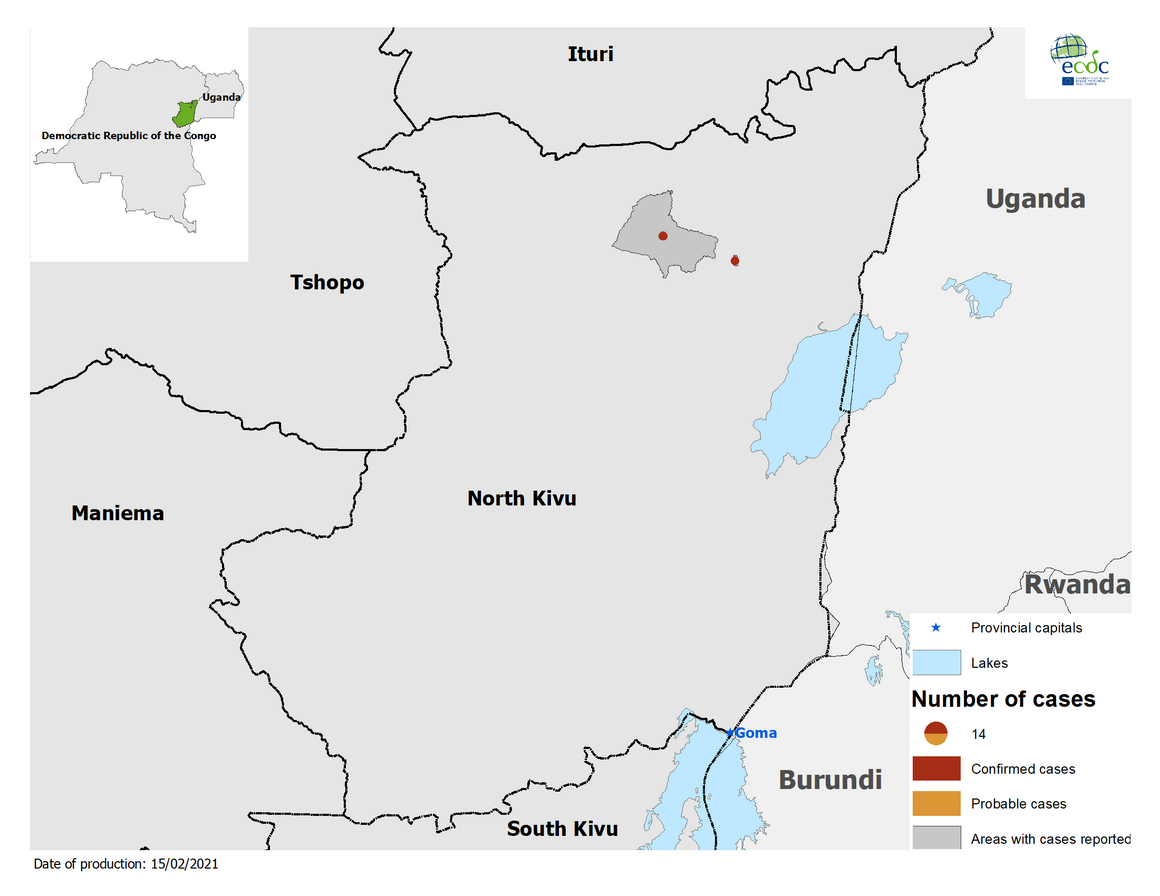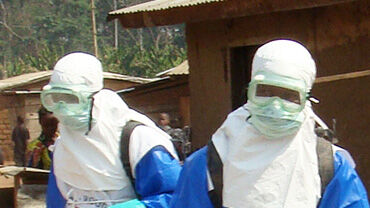Outbreak of Ebola virus disease in North Kivu – Democratic Republic of the Congo – 2021
As of 14 February 2021, four cases of Ebola virus disease (EVD), including two deaths, have been reported in the North Kivu province in the eastern part of the Democratic Republic of the Congo (DRC), where a large outbreak was declared over in June 2020. Two health zones are currently affected: Biena and Katwa.

On 7 February 2021, the Minister of Health of the Democratic Republic of the Congo (DRC) declared an outbreak of Ebola virus disease after a laboratory-confirmed case was detected. Since then, and as of 14 February, four cases and two deaths have been reported in the North Kivu province in the eastern part of the DRC, where the 10th outbreak in the DRC of Ebola virus disease, which resulted in 3 470 cases including 2 287 deaths, was declared over in June 2020. This current outbreak constitutes the 12th outbreak of Ebola virus disease in the DRC.
The first case was a 42-year old female patient who had sought treatment at a local healthcare centre in Butembo city in the Biena health zone, due to having Ebola-like symptoms. Ebola virus disease was laboratory-confirmed on 6 February. Her husband was an Ebola virus disease survivor whose biological samples had tested negative twice since 28 September 2020; she died on 4 February 2021. Contact tracing efforts began, during which a further case was detected on 10 February in Biena health zone, who has since died. The third and fourth cases were reported from the Katwa health zone on 12 and 14 February, respectively. The fourth case is a vaccinated healthcare worker reported to have had contact with one of the first three cases.
North Kivu Provincial health authorities are currently leading the response, and are supported by the WHO and the DRC Ministry of Health. The cases are being investigated by WHO epidemiologists on-site, and over 200 contacts have been identified so far. Samples from the first confirmed case are undergoing genetic sequencing to determine the Ebola virus strain as well as whether the case is linked to the previous outbreak.
ECDC Assessment
There is a risk that cases may flare up in the DRC. In addition, as the virus is present in the animal reservoir in many parts of the country, Ebola virus disease outbreaks are recurrent. The information currently available is insufficient to be able to confidently assess the likelihood of further or more widespread transmission. Continuing response measures and follow-up of survivors are essential to detect and interrupt transmission early on.
Significant developments have been made in the prevention of Ebola virus disease, with two vaccines now licensed for use in several countries. Assuming that healthcare workers (including EU/EEA citizens who could be deployed in response to this outbreak) are vaccinated and adhere to recommended precautionary measures, the risk of them becoming infected is low.
For other EU/EEA citizens living in or travelling through DRC, the likelihood of exposure is very low, as is the likelihood of introduction and further spread of the Ebola virus within the EU/EEA.






